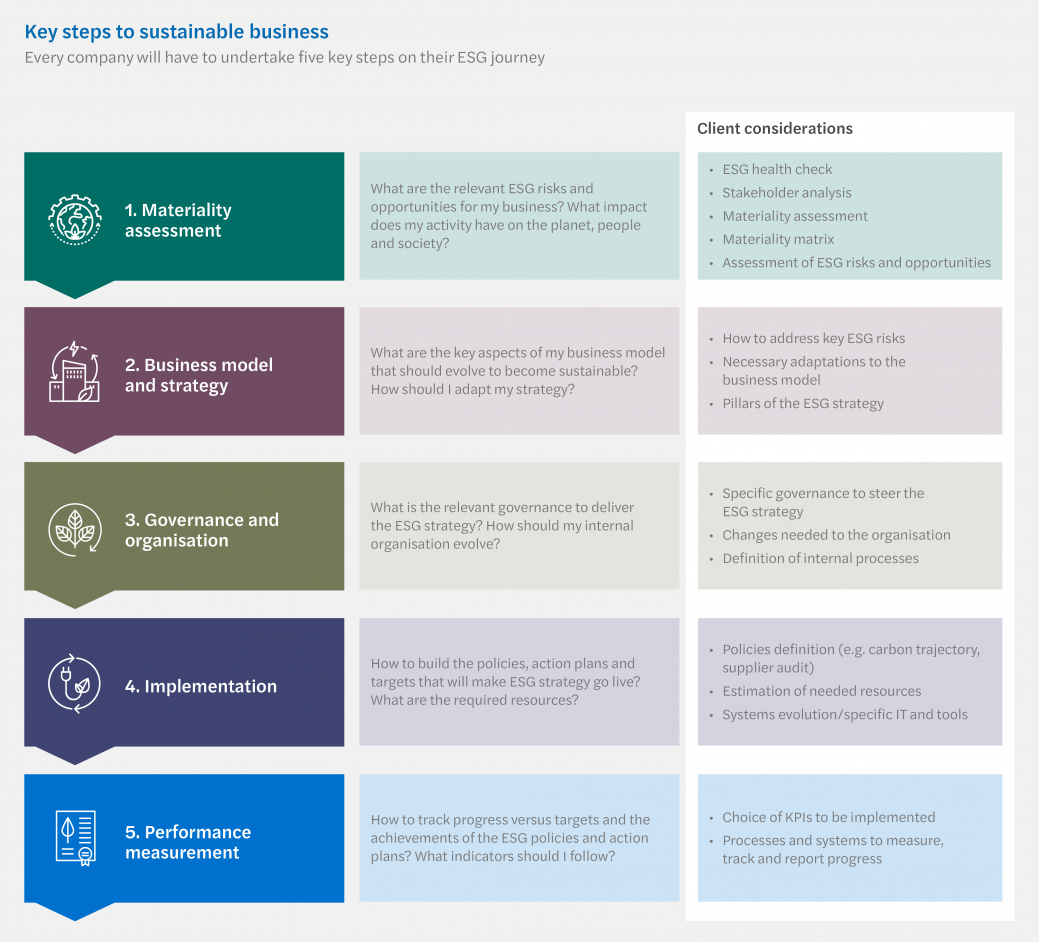Helping you demystify sustainability and ESG
Our latest research, based on feedback from senior leaders in the public and social sector, highlights the challenges and progress being made within the sector. It also provides pragmatic insights into how you can move forward positively with social value and ESG.
Access a copy here
Look beyond compliance
We work with you to create an effective ESG strategy and help you integrate this into your wider organisation. We align your objectives to create long-term value for your organisation, your stakeholders, and wider society while sustaining and enhancing our natural resources for future generations.
Our Five-Step approach
We will support you in understanding the complexities in the detail of the commitment to embedding ESG strategically into your organisation by following 5 key steps:
The practical benefits of our 5 step approach include
- walking you through best practices as you navigate your net-zero journey
- providing practical insights on how you can design and deliver a credible ESG strategy
- explaining how to unlock the latent desire within your leadership teams to drive the ESG agenda
- accelerating your decarbonisation ambitions using goal setting and leadership strategy.
- teaching game-changing activities to address carbon emissions.
- tracking progress through data reporting to demonstrate ESG accountability
Environmental, Social, and Governance (ESG)
ESG matters have become a 21st-century issue that all organisations need to address. The topic is broad and is likely to impact all aspects of your organisation in the coming years from meeting legal obligations and controlling costs to attracting and retaining staff and capital.
Get in touch
If you would like to book an initial consultation with a member of our Sustainability Team, please click the button below.
Contact us today
Sign up to have our newsletter delivered straight to your inbox

















